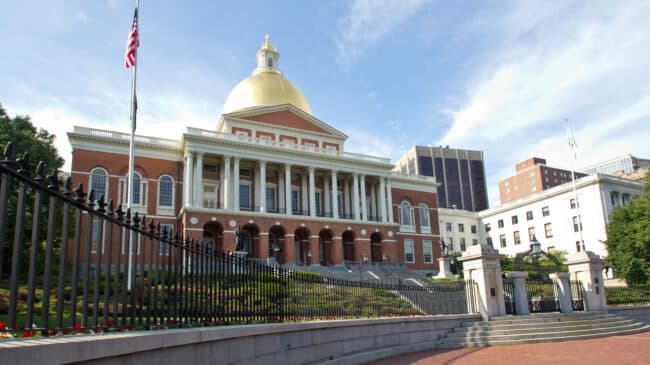A new ballot initiative aims to bring a legal psychedelics marketplace to Massachusetts. The “Natural Psychedelics Substances Act” is nearly identical to a measure that was successfully passed in Colorado in 2022 (Prop. 122) by the same activist group now working in Massachusetts, New Approach PAC.
The Massachusetts proposal has two major components. First, it would charge the state with creating a regulated marketplace where consumers can purchase professionally guided in-person psychedelic experiences. State lawmakers would form an advisory board to promulgate rules for the manufacturing, professional licensing, and hosting of psychedelic services, with the draft rules due by April 2026.
Massachusetts policymakers should note that a similar marketplace has been implemented in Oregon, where there are reports of overflowing waitlists for consumers seeking legal, professionally guided trips with psilocybin, the active ingredient in psychedelic mushrooms.
The Massachusetts initiative would hopefully improve upon the Oregon approach. For instance, Section 3(b) of the law would prevent local governments from banning psychedelic service centers within their jurisdictions. In Oregon, many counties opted to ban these centers, making legal psychedelic services inaccessible to large geographic regions. The mere prospect of local bans has also substantially increased the risk of doing business in Oregon because these bans can be implemented even as potential centers attempt to open shop.
Second, the Massachusetts ballot measure would also allow for home cultivation, which means that residents can grow and consume psychedelics for spiritual or mental health purposes. Section 5 of the initiative would legalize a personally allowable amount of psychedelic mushrooms, San Pedro cactus, ayahuasca, iboga, and any other botanical psychedelics that contain psilocybin, mescaline, DMT, and ibogaine. Section 5 also bans remuneration and advertising of psychedelic services other than by regulated licensees, although psychedelic substances could be gifted without remuneration. So, unlicensed professionals could not sell psychedelic products or market their services.
Lawmakers may need to clarify Section 5 to expressly allow a facilitator to sell guide services in a transaction adjacent to the gift of psychedelic substances. Decriminalization is intended to protect groups of friends, indigenous peoples, and community groups that wish to experience psychedelics together. It is common for groups to charge money to defray the costs of organizing a ritualistic ceremony.
In Colorado, activists who backed the ballot measure later cheered the passage of Colorado Senate Bill 290, which clarified that professionals may provide harm-reduction services at the same time they “gift” free psychedelics. Without this legislative clarification, it would have been left for state courts to decide whether paid ”trip-sitting” for someone who was freely given psychedelic mushrooms violates the rule around no remuneration.
Similarly, the Massachusetts legislature could take additional actions to improve the model proposed within the initiative after it passes. For example, lawmakers could authorize retail sales directly to consumers or make exemptions for religious organizations and indigenous groups to hold services at a site other than a licensed clinical facility, such as an outdoor retreat. The initiative sets a minimum standard that the state must allow some psychedelic professional services.
New Approach successfully collected enough signatures to pass through the first phase of the ballot process. Lawmakers in Massachusetts have until April 30 to propose their alternative to a ballot initiative that would legalize psychedelics. If lawmakers fail to offer an alternative, activists may continue collecting the additional 12,429 signatures they need to qualify the initiative for the state ballot this November.
